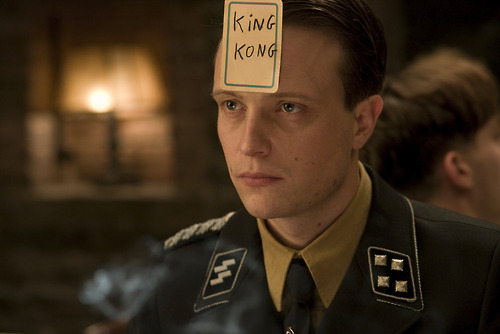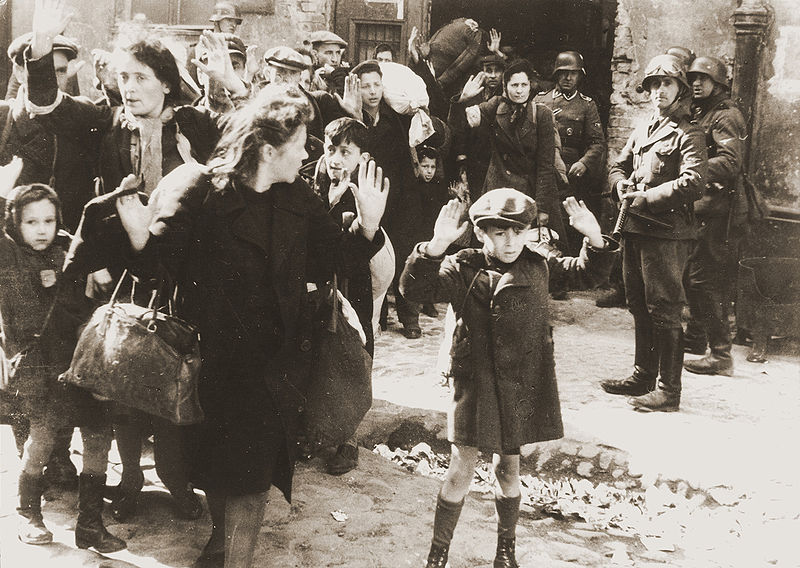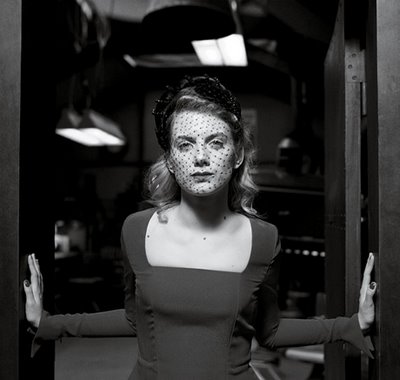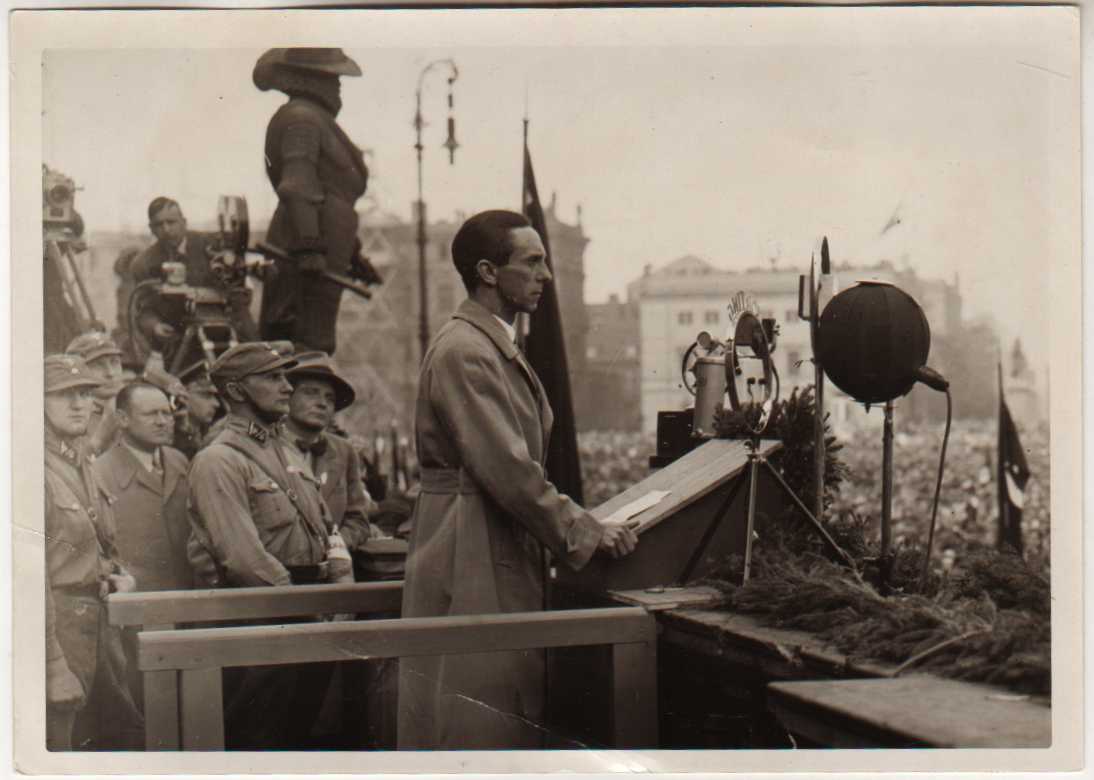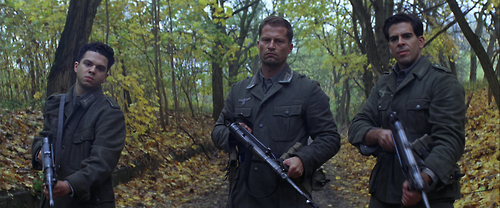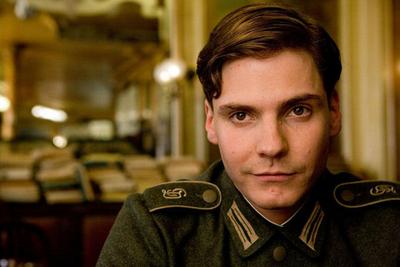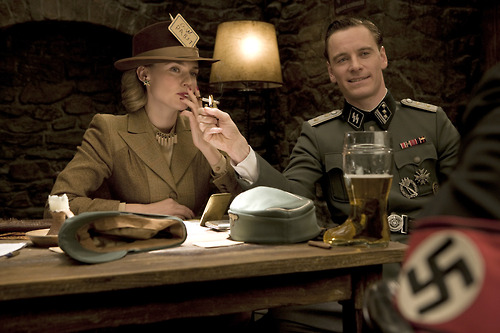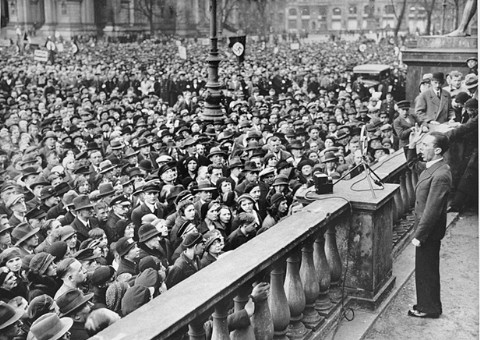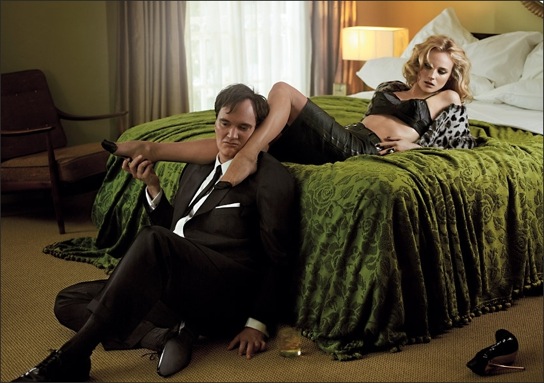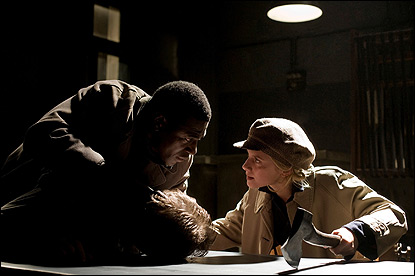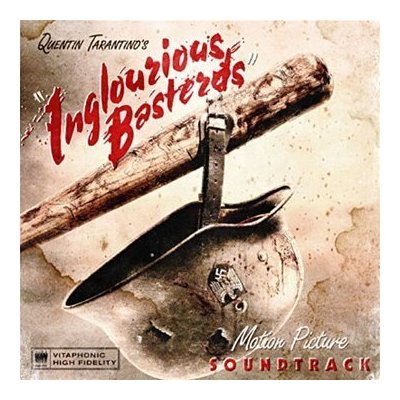
Walking the Earth
by MOLLY O'BRIEN
Pulp Fiction
dir. Quentin Tarantino
154 minutes
It is precisely right that Pulp Fiction begins and ends in a diner. Diners are places where ordinary things happen. Breakfast, small talk, “Garçon, coffee.” But one minute you’re having a Denver omelet, and the next minute somebody’s sticking a gun in your face.
Pulp Fiction is not science fiction, but it does have a sci-fi element of the uncanny. It is about big visuals and big sound, warped reality and warped morality. To watch a Tarantino movie is to be manipulated somehow, and Tarantino manipulates the viewer quite nimbly — after all, a man with a foot fetish is categorically required to convince people that certain unattractive things are attractive. Watching the film can make you believe that everyone should carry a gun, that jobs in offices are boring and not worth having, that cocaine, while dangerous, is an attractive alternative to heroin.

Real life becomes mundane when each scene is peppered with gunshots; real life becomes a space in which all the steaks are either bloody as hell or burnt to a crisp; real life is when Vincent Vega says “We should have fuckin’ shot guns” with the casual swagger of a small-town mayor.
If Seinfeld is a show about nothing then Pulp Fiction is a movie about a little bit of everything — just not in chronological order. Anyone who says Tarantino revolutionized the concept of nonlinear narrative will be beaten to death by James Joyce’s black-hatted ghost, but he took often unfriendly style of storytelling and turned it into something mainstream audiences can swallow. There is something to be said for the way the film artfully skips from Butch’s breezy “Zed’s dead, baby” line to the recapitulation of the Ezekiel 25:17 speech. Time isn’t real! Or maybe it’s real, but it doesn’t matter. “Next time we see each other it’ll be Tennessee time.” “Que hora es?” “Any time of the day is a good time for pie.” “If I’m curt with you, it’s because time is a factor.”

The storyline that is the bread of the Pulp Fiction club sandwich concerns Jules (Samuel L. Jackson) and Vincent (John Travolta), two hitmen for L.A. kingpin Marsellus Wallace who are responsible for retrieving a glowing briefcase from a handful of strangely yuppie-ish youths. Did these kids really have an appetite for Big Kahuna burgers at 7:22 in the morning? Would a Big Kahuna burger involve some sort of grilled pineapple accoutrement? Having gunned down all the mini yuppies, and having miraculously survived a hailstorm of bullets from a third, hidden mini yuppie, Jules and Vincent leave with the precious cargo only to shoot their underling Marvin in the head by accident. It is a rough day at the proverbial office.
They go to Jimmy’s (Quentin Tarantino) house, put on his nerdy collegiate clothes, scrub off all the blood and let Winston “The Wolf” Wolfe (Harvey Keitel) take care of the corpse. The Wolf must be Tarantino’s idea of a deus ex machina — he delegates tasks with grace and a remarkable lack of bullshit, knows which truck repair place can get rid of Marvin’s body (what’s left of it, anyway), and compliments Jimmy on his expensive taste in coffee. A human deus ex machina would definitely wear a tuxedo.

Jules and Vincent hand over the briefcase to Marsellus. He is pleased. There is one theory about the briefcase suggesting it contains Marsellus’ soul — the band-aid on the back of his neck marks the place through which one’s soul would apparently be sucked out by the devil. I like this theory because I don’t think he’s the only guy in Los Angeles with his soul knocking around like the eight ball on a pool table. When I first saw Pulp Fiction I was sixteen and had no imagination; I thought the glow from the briefcase signified gold. Now I see how foolish that idea was. Marsellus is a nasty dude, but no way would he appoint Jules and Vincent to gun down three young guys for mere gold. A briefcase full of gold nuggets has as much value to Marsellus Wallace as a bowl of Cheerios.
Vincent is a facile cheeseball who makes motivational speeches to himself in the bathroom (sort of like Bruce Willis when he guest-starred on Friends), but Jules is the only character who might still be in possession of his soul. He may quote a (fake) Bible passage before obliterating Marsellus’ transgressors, but he’s the one who, post bullet hailstorm, manages to find religion without sounding like he’s been hypnotized at the county fair. Something about Samuel L. Jackson’s mellifluous voice makes conversion seem utterly rational. “You’re judging this the wrong way,” Jules says to Vincent. “You don't judge shit like this based on merit. Whether or not what we experienced was an according-to-Hoyle miracle is insignificant. What is significant is I felt God's touch. God got involved.” Jules offers a reasonable solution for religious conflict: if you didn’t experience God, that’s okay; if you experienced God, understand that your experience may not be enough to convince others.

Jules finds the redemption, but Vincent gets the fall after his night with Mia Wallace (Uma Thurman). Taking the boss’ wife out should be as innocuous as a five-dollar vanilla milkshake, just not when both parties prepare by getting really high. The film doesn’t glamorize drugs — not with the shot of Mia OD’ing and looking like something out of Colson Whitehead’s Zone One — but it must be said that both characters look their best right after illicit consumption. Vincent has a great, shit-eating heroin grin, and Mia gets this unbelievably sexy gleam in her eye after doing a bump in the restaurant bathroom. Whoever runs D.A.R.E can’t prevent this kind of drug-induced self-confidence, not unless they base all their programs around the image of a vomit-covered Uma Thurman. By the way, a $5 shake in 1994 would be a $7.26 shake today.
Pulp Fiction is a lot like Marsellus Wallace’s house: cool, slick, big stereo, and you can’t find out where the intercom is. Mia and Vincent’s Twist scene has entered our cultural visual lexicon (does anyone have a better word for “visual lexicon”?) but I prefer Mia dancing solo to “Girl, You’ll Be a Woman Soon.” It is hot and awkward at the same time. Mia Wallace is more than a woman to me, and I would like to know what shade of lipstick she wears.

Butch Coolidge, around whom the third storyline revolves, is the opposite of Mia Wallace. He is not cool so much as he is menacing. He is sweaty and hypermasculine, a boxer who takes fights one at a time which must seem kind of wimpy to Butch, at least in comparison to his father and grandfather and great-grandfather, who were all war heroes fighting for America. Butch has one last match in him, and Marsellus Wallace wants to fix it so that he loses. When Butch sits and listens to Marsellus Wallace tell him that ability don’t last, you can practically see in the expression on his just-short-of-craggy face that he would rather be raped by the Gimp a thousand times than let his ass go down in the fifth.
 Esmeralda Villalobos, the film’s sexy MacGuffin
Esmeralda Villalobos, the film’s sexy MacGuffin
The boxing match occurs off-screen but it isn’t difficult to imaging Butch killing a guy with his bare hands. Butch blows the fixed match, arranges to collect on his bets, meets up with his adorable French girlfriend at the motel and gets ready to book it for Tahiti or Bora Bora or wherever rich people go; unfortunately, the girlfriend forgot the fucking watch! The wristwatch that has been passed down through the men of his family for generations is back at home, and so are the men who want him dead.
Butch wears this watch all the time and it probably reminds him of the fact that he’s not a military hero like Grandpops, but he needs it anyway. He risks his life to get the watch back. He ends up in a sex-torture nightmare of a basement with Marsellus Wallace himself in order to get that watch back. Everyone has that watch. Everyone has a watch, or a Mia Wallace, or a gun-induced miracle. Is that what Tarantino is trying to say? That the events in life designed to bring about ruin are those that make life worth living?
 Somebody, please, get this lovely young woman some blueberry pancakes
Somebody, please, get this lovely young woman some blueberry pancakes
Some movies would rather the audience turn their brain off at the first sign of the opening credits. They’d rather not have people think about what might happen to their characters after the first kiss or the wedding or the heartwarming family hug. (Usually these films star Kate Hudson.) But with Pulp Fiction it is really fun to imagine what is going to happen to everyone after their mini-stories end. These characters are so sexy and repulsive and charismatic and grotesque that they merit much consideration for their futures. Is Marsellus Wallace going to contract some sort of sexual PTSD, or at least a venereal disease? Is Mia Wallace going to kick hard drugs and swan about in a swim cap for the rest of her life? Is Butch really going to enjoy Bora Bora? What if he loses his watch in the tranquil Pacific waters?

Most importantly, is Jules going to walk the earth, as he declares in the diner? The concept of walking the earth probably sounded insane to Vincent, at least in 1994. That was a time when you could get paid in cash for a little dirty work, a time before politicians and cops were felling bosses like Marsellus Wallace left and right. No one in their right mind would have wanted to walk the earth in 1994, but in 2011 “walk the earth” sounds like a better post-college plan than “move in with your parents and bartend at the local Texas Roadhouse.” The sex and the flash of the film are nice audiovisual stimuli as they occur, but the lasting impression may as well be the future Jules, toting a backpack instead of a briefcase, shoes worn out from walking the earth.
Molly O'Brien is the senior contributor to This Recording. She is a writer living in Burlington, Vermont. She tumbls here. She last wrote in these pages about Justin Bieber. You can find an archive of her writing on This Recording here.

Turn Your Back On The 1990s At Your Own Peril
Elena Schilder on American Beauty
Elizabeth Gumport on Wild Things
Molly O'Brien on Pulp Fiction
Hanson O'Haver on Airheads
Alex Carnevale on Indecent Proposal
Emma Barrie on While You Were Sleeping
Jessica Ferri on The Devil's Advocate
Durga Chew-Bose on Titanic
Molly Lambert on Basic Instinct
Alex Carnevale on Singles

"Street Halo" - Burial (mp3)
"NYC" - Burial (mp3)
"Stolen Dog" - Burial (mp3)

 FILM
FILM  Thursday, December 24, 2015 at 11:37AM
Thursday, December 24, 2015 at 11:37AM 
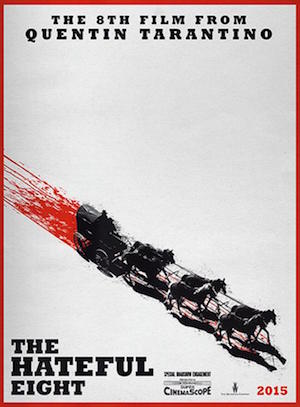 Inspiration had to run out at some point. Quentin Tarantino made the most fun motion pictures around for the past two decades. Now he has stopped caring completely. His use of the n-word becomes rather tiring at some point during The Hateful Eight, so that the movie becomes something truly hateful rather than joyful. The fact that this is yet another historical treatment of the slur by Tarantino makes all his modern films, filled to the brim with the sobriquet, kind of embarrassing in retrospect.
Inspiration had to run out at some point. Quentin Tarantino made the most fun motion pictures around for the past two decades. Now he has stopped caring completely. His use of the n-word becomes rather tiring at some point during The Hateful Eight, so that the movie becomes something truly hateful rather than joyful. The fact that this is yet another historical treatment of the slur by Tarantino makes all his modern films, filled to the brim with the sobriquet, kind of embarrassing in retrospect.


















































